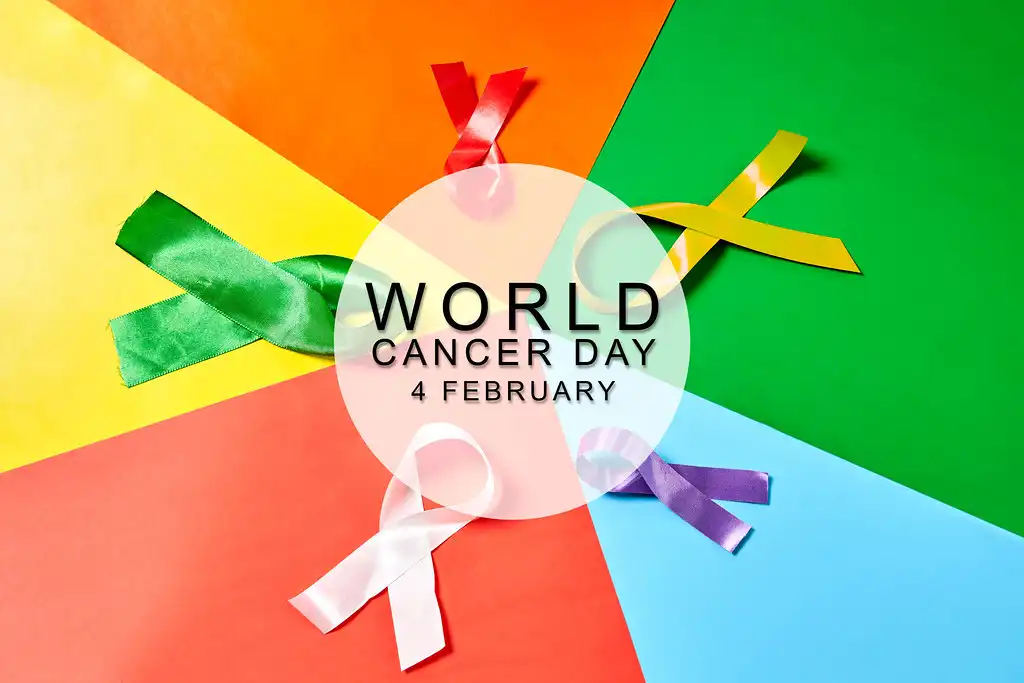Mark World Cancer Day on February 4th to raise awareness and educate people about the global impact of cancer. Cancer causes an estimated 9.6 million deaths worldwide each year and is expected to become the leading cause of death by 2030. The theme, “I Am and I Will,” highlights the power of individual actions in the fight against cancer.
The World Cancer Day campaign aims to mobilize the global community to take action in reducing the impact of cancer, such as adopting healthy lifestyles, increasing access to screening and treatment, and advocating for better cancer care. Individuals can reduce the risk of developing cancer by quitting smoking, eating a healthy diet, getting regular physical activity, and getting vaccinated against certain types of cancer.
Today is #WorldCancerDay
Few diseases reflect global inequities as starkly as #BreastCancer and #CervicalCancer.
Nearly 8⃣0⃣% of deaths from breast and cervical cancer occur in low- and middle-income countries. #CloseTheCareGap in #cancer ⬇️
— World Health Organization (WHO) (@WHO) February 4, 2023
Governments, organizations, and the healthcare industry can also play a significant role in the fight against cancer by investing in cancer research, increasing access to affordable and effective treatments, and strengthening healthcare systems to better detect and manage cancer.
World Cancer Day serves as a reminder of the ongoing battle against cancer and the importance of collective action in reducing its impact. By working together and taking individual actions, we can create a healthier future for ourselves and future generations. Pledge today to do your part in the fight against cancer and support those affected by this disease.
The most common types of cancer in the world
The most common types of cancer in the world are:
- Lung cancer
- Breast cancer
- Colorectal cancer
- Prostate cancer
- Stomach cancer
These cancers are responsible for the majority of cancer deaths worldwide, but the exact distribution of cancer types varies between countries and regions, reflecting differences in lifestyle, environmental factors, and access to healthcare.
The most common types of cancer in India
In India, the most common types of cancer are:
- Breast cancer
- Cervical cancer
- Mouth cancer (oral cancer)
- Lung cancer
- Stomach cancer
Breast cancer and cervical cancer are the most common types of cancer among women, while oral cancer and lung cancer are the most common types of cancer among men. Stomach cancer is also a major public health concern in India, particularly among older populations. These cancer types often result from a combination of genetic and environmental factors, including tobacco and alcohol use, unhealthy diets, and lack of access to screening and early treatment.
Uncovering the Root Causes of Cancer: Exploring the Key Risk Factors
Cancer is caused by a variety of factors, including genetic mutations, environmental exposures, lifestyle choices, and underlying medical conditions. Some of the most well-known causes of cancer include:
- Tobacco use: Smoking and exposure to secondhand smoke are the leading causes of lung cancer, as well as a risk factor for many other types of cancer.
- UV radiation: Excessive exposure to ultraviolet (UV) radiation from the sun or tanning beds increases the risk of skin cancer.
- Infections: Certain viruses, such as human papillomavirus (HPV), hepatitis B and C, and human immunodeficiency virus (HIV), can increase the risk of certain types of cancer.
- Diet and lifestyle: A diet high in processed and red meat, as well as low in fruits and vegetables, increases the risk of colon and other digestive tract cancers. Obesity and a lack of physical activity also increase the risk of many types of cancer.
- Environmental pollutants: Exposure to chemicals, pollutants, and toxic substances in the environment can increase the risk of cancer.
- Family history and genetics: Some cancers run in families, indicating that genetic mutations can be passed down from generation to generation.
It’s important to note that not all cancers are preventable, and some people may develop cancer despite making healthy choices. However, reducing exposure to risk factors, maintaining a healthy lifestyle, and getting regular screenings can greatly reduce the risk of cancer.
Preventing Cancer: Simple Lifestyle Changes and Early Detection
There is no surefire way to prevent cancer, but there are steps you can take to reduce your risk:
- Maintain a healthy diet that is rich in fruits, vegetables, and whole grains and low in processed foods, red meat, and sugar.
- Exercise regularly. Aim for at least 30 minutes of physical activity each day.
- Avoid tobacco use, including smoking and secondhand smoke.
- Limit alcohol consumption.
- Protect your skin from the sun, including wearing protective clothing and using sunscreen.
- Get vaccinated against certain types of cancer, such as HPV or liver cancer.
- Get regular cancer screenings based on your age, gender, and family history.
- Avoid exposure to environmental toxins and pollutants whenever possible.
- Manage stress through exercise, meditation, or other stress-reducing activities.
Remember, early detection and prompt treatment are important in the fight against cancer. Talk to your doctor about your individual risk factors and the best screening and prevention strategies for you.

